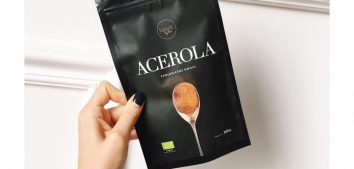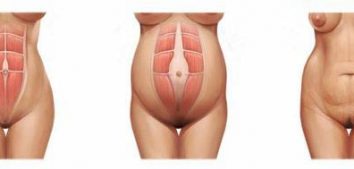
What to eat and drink while training?
As a professional athlete I know that proper nutrition is the basis of a healthy lifestyle. What’s more, if you don’t balance your carb, protein and fat intake, it will be more difficult to achieve the desired results, including those in sport. In order to avoid it, you need to know what function each nutrient has and which products you should choose. Remember that different types of workouts require a different approach while choosing macronutrients!
Proper hydration and maintaining electrolyte balance are also important during training. If you dehydrate, it will lead to reduction in your efficiency, deterioration of the effectiveness of your training and it may even pose a threat to your health.
What is the daily demand for water and electrolytes?
The body’s need for water depends on many factors, including age, gender, diet composition, ambient temperature, climate and physical activity. It increases with elevated temperature and reduced humidity, greater physical activity and high energy value of the diet. If you exercise and consume larger amounts of protein, you should also remember about the extra fluid supply. Water in the body occurs along with electrolytes. The excretion of water and electrolytes from the body must be balanced by adequate supply to maintain the body’s water and electrolyte balance.
General requirements for water and electrolytes have been set at a level of sufficient consumption. They apply to people with average physical activity living in the temperate climate zone. According to these standards, an adult male should consume about 2,500 ml of water, 1.5 g of sodium and 3.5 g of potassium per day. An adult woman should consume 2000 ml of water, 1.5 g of sodium and 3.5 g of potassium per day. Remember to keep a good balance between sodium and potassium and don’t eat too much salt. Too much sodium leads to hypertension and can contribute to cardiovascular disease.
Homemade isotonic drink
Below you will find a recipe for an isotonic drink which you can easily prepare at home. It’s great for rehydration.
Ingredients:
- 200 ml concentrated fruit juice (e.g. pomegranate, orange, pineapple)
- 800 ml water
- 1 teaspoon Himalayan or sea salt
- a pinch of cayenne pepper
Preparation:
Just combine all the ingredients.
Now let’s hit the high points
Diet in strength training
If you want to have a muscular body, then apart from training you also need to follow a proper diet. I have already mentioned more than once that the right amount of protein in the diet is necessary to expand our muscle mass. Therefore, if you do strength sports, you should increase your protein intake to a maximum of 2 g / kg of body weight per day. In addition to the amount of protein in the diet, the right ratio of vegetable to animal protein is also important. Consume mainly wholesome protein derived from such products as lean meat, poultry, fish, as well as dairy (if you tolerate it well). You can also provide some protein from plant-based products. When it comes to plants, legumes are especially rich in protein. Carbohydrates should also play an important part in your diet. Choose mainly complex carbs, which are also a good source of dietary fiber, derived from products such as wholegrain bread, cereals, thick groats, and brown rice. It is also recommended to improve your menu with healthy fats from vegetable oils, seeds, nuts, or avocados.
Diet for Cardio training
JIf you do endurance training and your main goal is a small weight reduction, a diet with a slightly increased protein and reduced carbohydrate content will work best for you. Use carbohydrates both before and after training. Remember that the right dose of simple carbohydrates after training will be the best solution to rebuild glycogen stores. Before training you should have complex carbohydrates from whole grains or vegetables. Lean meat, poultry, fish and eggs will provide you with good quality proteins. It is also a good idea to cut down on fat, especially animal fat. However, fat should not be completely excluded from the menu. Those healthy fats that come from products such as avocados, nuts and vegetable oils are also great when you practice aerobic training.
A runner’s diet
If you are an avid runner, you should pay special attention to the right amount of carbohydrates in your diet. Depending on the distance you run and how often you train, eat 4 to 10 g of carbohydrates per kg of body weight per day. The longer and more often you train, the more carbohydrates you should consume. Before training and between workouts, choose mainly complex carbohydrates with a low glycemic index. Don’t forget to replenish your carbs after a long and intense workout. In this situation, simple and easily digestible carbohydrates are better. You can find them e.g. in smoothies, fruit and fruit juices. In addition, you should also remember about proper protein intake. Depending on your training goals, protein should amount to 15-20% of your diet’s energy value. The rest of the energy needs should be covered by healthy vegetable fats.


Bibliography:
- Bean A. Żywienie w sporcie. Wydaw. Zysk i S-ka, 2014.
- Frączek B., Krzywański J., Krysztofiak H. Dietetyka sportowa. Wydaw. Lekarskie PZWL, 2019.
- Jarosz M. Normy żywienia dla populacji Polski. Instytut Żywności i Żywienia, 2017.
- Mizera J., Mizera K. Dietetyka sportowa: co jeść by trenować efektywnie. Wydaw. Galaktyka, 2017.










Comments No Comments
Join the discussion…